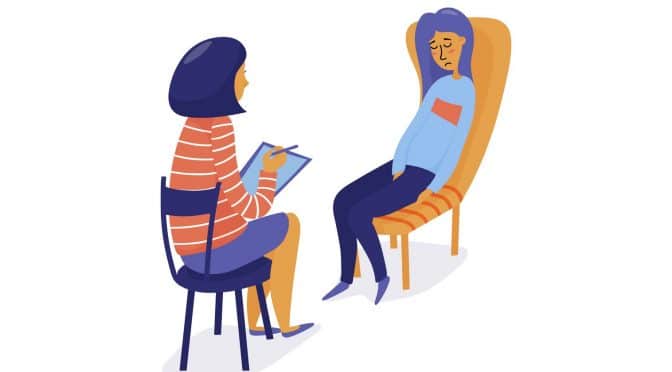Locating the Best Psychologist in Delhi: An Overview to Your Psychological Health Trip
Locating the Best Psychologist in Delhi: An Overview to Your Psychological Health Trip
Blog Article
Psych Treatment: A Comprehensive Guide to Results and methods

Cognitive-Behavioral Treatment
Cognitive-Behavioral Therapy (CBT) is a widely used psychotherapeutic approach that concentrates on identifying and modifying useless reasoning and actions patterns. Developed in the 1960s by Aaron T. Beck, CBT integrates behavior and cognitive theories to deal with different mental health and wellness issues, including depression, anxiety, and stress-related disorders. The facility of CBT is that maladaptive ideas add to psychological distress and maladaptive behaviors. By restructuring these thoughts, people can accomplish significant renovations in their emotional wellness and everyday functioning.
Methods such as cognitive restructuring, direct exposure therapy, and skill-building exercises are generally used. Cognitive restructuring includes difficult and altering unfavorable idea patterns, while direct exposure treatment intends to reduce anxiety and anxiety with steady direct exposure to been afraid scenarios or items.
Evidence-based research study sustains the efficiency of CBT for a broad range of psychological disorders - Best Psychologist in Delhi. Its emphasis on skill purchase and self-help methods empowers customers to proceed progression independently after treatment ends. The versatility and effectiveness of CBT have actually made it a keystone in contemporary psychotherapeutic practice
Psychodynamic Techniques
Rooted in the very early concepts of Sigmund Freud, psychodynamic methods concentrate on checking out the subconscious mind and its influence on habits and emotions. These approaches aim to reveal covert thoughts and sensations that might be driving maladaptive actions and emotional distress. Central to this strategy is the concept of internal conflict, frequently coming from unsolved past experiences, specifically those from childhood years.
Therapists utilizing psychodynamic methods use several crucial methods, including cost-free association, where individuals are encouraged to talk freely to reveal unconscious material, and dream evaluation, which interprets the concealed content of desires. In addition, the exploration of transference and countertransference characteristics within the restorative connection is essential. These communications can provide understandings into the individual's internal globe and relational patterns.
Psychodynamic treatment is generally longer-term compared to other methods, using a thorough and deep understanding of the individual's subconscious. Study shows that it can be particularly effective for complex psychological health concerns, such as individuality problems and chronic clinical depression. By cultivating self-awareness and psychological understanding, psychodynamic treatment looks for to bring subconscious material to consciousness, allowing individuals to accomplish purposeful and lasting change in their lives.
Humanistic Methods
Building on the structures laid by psychodynamic techniques, humanistic techniques supply a distinctive point of view concentrated on individual prospective and self-actualization. Stemming in the mid-20th century, these techniques prioritize the inherent benefits and growth potential of people, stressing an all natural sight of human experience. Secret numbers such as Carl Rogers and Abraham Maslow have significantly influenced this therapeutic technique, which encompasses approaches like client-centered treatment and Gestalt therapy.
Client-centered treatment, established by Rogers, plays a crucial function in humanistic techniques. The specialist's duty is more of a facilitator than an authority, encouraging clients to harness their inner resources for recovery.
Gestalt treatment, one more vital humanistic technique, stresses existing moment recognition and the combination of mind and body. By focusing on the "right here and now," clients obtain greater understanding right into their present emotions and habits. Strategies such as role-playing and guided visualization are often utilized to help customers acquire a deeper understanding of themselves, ultimately resulting in improved self-awareness and gratification.
Integrative Treatments
Integrative therapies stand for a synthesis of different restorative methods tailored to satisfy the one-of-a-kind demands of each customer. This technique recognizes the complexity of human psychology and the diverse nature of psychological health and wellness issues. By incorporating elements from various schools of psychiatric therapy-- such as cognitive-behavioral therapy (CBT), psychodynamic treatment, and humanistic approaches-- integrative therapies supply a more holistic and adaptable treatment standard.
Professionals of integrative therapy evaluate each customer's certain demands, signs and symptoms, and personal background to devise a customized therapy plan. This customized method enhances the possibility for therapeutic success by attending to the source of emotional distress and promoting overall well-being. Methods might include mindfulness exercises, cognitive restructuring, and emotional processing, each selected to target different elements of the client's issues.
Moreover, integrative treatments highlight the therapeutic connection, checking out the client-therapist bond as a crucial element of efficient therapy. This connection fosters a supportive environment where clients feel safe to check out and resolve their worries. The adaptability of integrative treatments makes them suitable for a broad series of conditions, including anxiousness, clinical depression, injury, and social troubles, thus boosting their applicability and performance in diverse clinical setups.

Gauging Treatment Outcomes
Evaluating the effectiveness of psychotherapy is critical for both clinicians and clients to make certain that the treatment is producing the wanted outcomes. To achieve this, different approaches and devices are used to measure therapy best site end results systematically. Standardized evaluation tools, such as the Beck Depression Inventory (BDI) and the Generalized Anxiousness Problem 7 (GAD-7), supply quantitative information on sign intensity and modifications gradually.
Along with standardized tools, qualitative techniques like client self-reports and medical meetings use beneficial insights right into the individual experiences and regarded progression of clients. Frequently set up examinations, typically at the beginning, omphalos, and end of treatment, aid in tracking the trajectory of improvement or identifying areas needing change.
Outcome measurement is not limited to sign decrease; it also incorporates useful enhancements in daily life, such as better interpersonal connections, boosted work productivity, and boosted general wellness. Modern improvements in electronic health have presented mobile applications and on-line systems that help with real-time monitoring and feedback, better refining the evaluation process.
Ultimately, a thorough technique to measuring therapy end results ensures that restorative treatments are effective, efficient, find more and tailored to satisfy the private requirements of clients, thus enhancing the total restorative experience.
Final Thought
Psychotherapy provides a multifaceted variety of techniques focused on dealing with particular mental health issues and enhancing general health. Cognitive-Behavioral Therapy and psychodynamic techniques target useless thoughts and subconscious influences, respectively. Humanistic strategies focus on individual development and self-actualization, while integrative therapies combine several techniques for customized therapy plans. Examining therapy end results through qualitative techniques and standardized assessments guarantees a thorough understanding of efficiency, inevitably directing customers towards sustaining psychological wellness enhancements.
From the structured strategy of Cognitive-Behavioral Treatment (CBT) to the deep exploration of the unconscious in psychodynamic therapy, each approach brings unique advantages. Its emphasis on skill procurement and self-help techniques equips customers to proceed progression separately after therapy wraps up (Best Psychologist in Delhi). Key numbers such as Carl Rogers and Abraham Maslow have dramatically influenced this healing strategy, which includes techniques like client-centered therapy and Gestalt therapy

Report this page